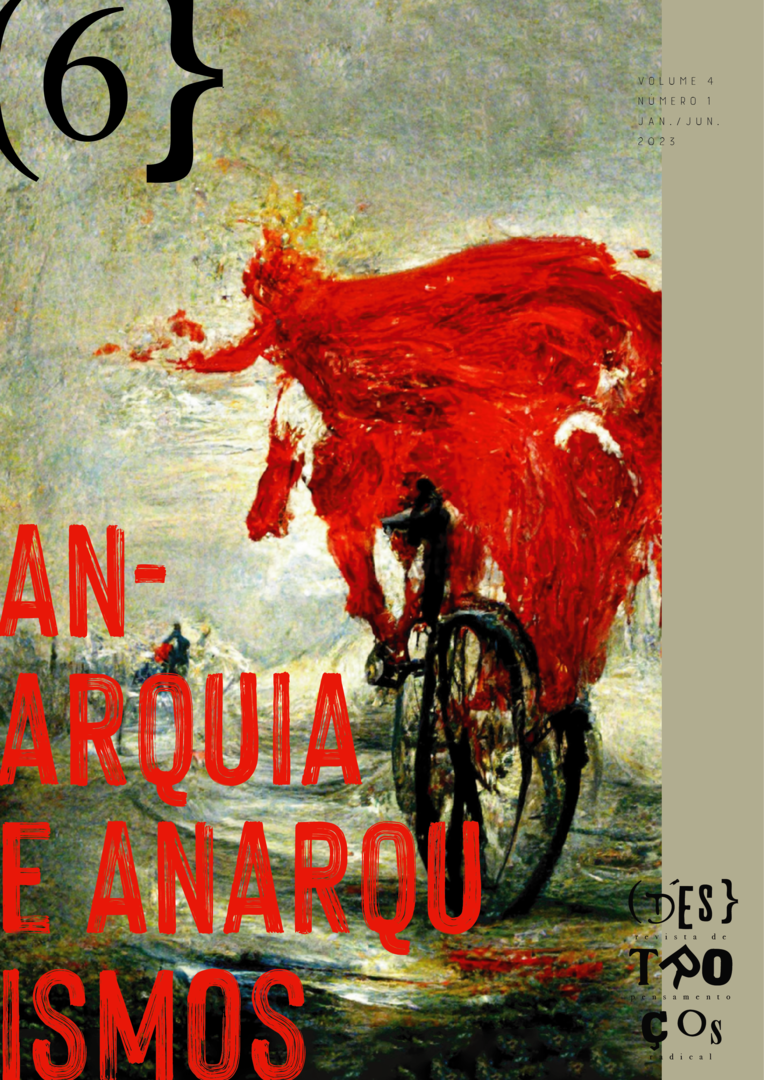Published 2023-06-15
Keywords
- Secret,
- confinement,
- writing,
- espionage
How to Cite
Copyright (c) 2023 Harriet García de Vicuña Gortazar

This work is licensed under a Creative Commons Attribution-NonCommercial 4.0 International License.
Abstract
The text reflects on the paradox implicit in the encoded letters. This inconsistency is a consequence of the problem of the opening of writing, that is, of the impossibility of writing to discriminate against its readers: a text is exposed to all viewers.
The paradox is greater when the writing has a concrete and determined addressee: the intention, the need to exclude from reading the text all those who are considered inappropriate forces the sender to face the following problem: How to write a text that discriminates, that "chooses" the right receiver?
Reflection on this topic is oriented by exposing and analyzing examples in which maintaining secrecy is a matter of life or death: failing to codify the writing can lead the sender to death, jail or exile. The indiscreet opening of the text becomes the central problem when analyzing communication practices, in the context of organizations that make the secret basis of their own existence.
Downloads
References
- BAKUNIN, Mijaíl. NECHAYEV, Sergéi. El Catecismo Revolucionario: el libro maldito de la anarquía. Trad. Juan J. Alcalde, Frank Mintz y Miguel Sagunto. Madrid: La Felguera editores, 2014.
- CASTELLOTTI, Marco Bona. La Paradoja de Caravaggio. Trad. Ángela Pérez García. Madrid: Ediciones Encuentro, S.A., 2010.
- FOUCAULT, Michel. Vigilar y castigar: nacimiento de la prisión. Trad. Aurelio Garzón del Camino. Buenos Aires: Siglo XXI Editores Argentina, 2002.
- HERNÁNDEZ MERCADO, Carlos. Filosofía de la escritura: paisajes esteganográficos. Ciudad de México: Universidad Iberoamericana, 2019.
- KROPOTKIN, Piotr. Memorias de un revolucionario. Captura y diseño Chantal López y Omar Cortés. Edición cibernética. 2006. Disponible en https://sobrelaanarquiayotrostemas.files.wordpress.com/2018/03/kropotkin_memorias_revolucionario.pdf. Acceso el 17/03/2023.
- LEHNING, Hervé. La biblia de los códigos secretos. Trad. Tabita Peralta Lugones. Barcelona: Libros Cúpula, 2021.
- LIDA, Clara E. La mano negra (Anarquismo agrario en Andalucía). Madrid: Colección <>, Serie V. Num. 29, Edita Zero, S.A., 1972.
- PLATÓN. Diálogos: dudosos, apócrifos, cartas. Traducciones, introducciones y notas por Juan Zaragoza y Pilar Gómez Cardó. Madrid: Editorial Gredos, S.A.U., 2008.
- ROMERO GARCÍA, Eladio. La Mano Negra: crisis rural en Andalucía a finales del siglo XIX. España: Editorial Alnuzar, S.l., 2017.
- SÁNCHEZ, Jean-Lucien. El presidio colonial de la Guayana Francesa (siglos XIX-XX): los transportados al campo de destierro de Saint-Laurent-du-Maroni. Revista de Historia de las Prisiones, nº 10, pp. 75-155, 2020.
- SERGE, Victor. Lo que todo revolucionario debe saber sobre la represión. Trad. Daniel Molina. Ciudad de México: Fondo de Cultura Económica, 2019.
- SIMMEL, Georg. El secreto y las sociedades secretas. Versión: Javier Eraso Ceballos. Madrid: Ediciones sequitur, 2015.
- SZENDY, Peter. Bajo escucha. estética del espionaje. Trad. Pedro Hugo Alejandrez Muñoz. Ciudad de México: Canta Mares, 2018.
- THOMAS, Bernard. Jacob recuerdos de un rebelde. Trad. Ariel Bignami. Tafalla: Editorial Txalaparta S.L.L., 2015.
- VAN DAAL, Julius. Bello como una prisión en llamas: breve relación de los Gordon Riots. Trad. Federico Corriente. Logroño: Pepitas de calabaza ed., 2012.

